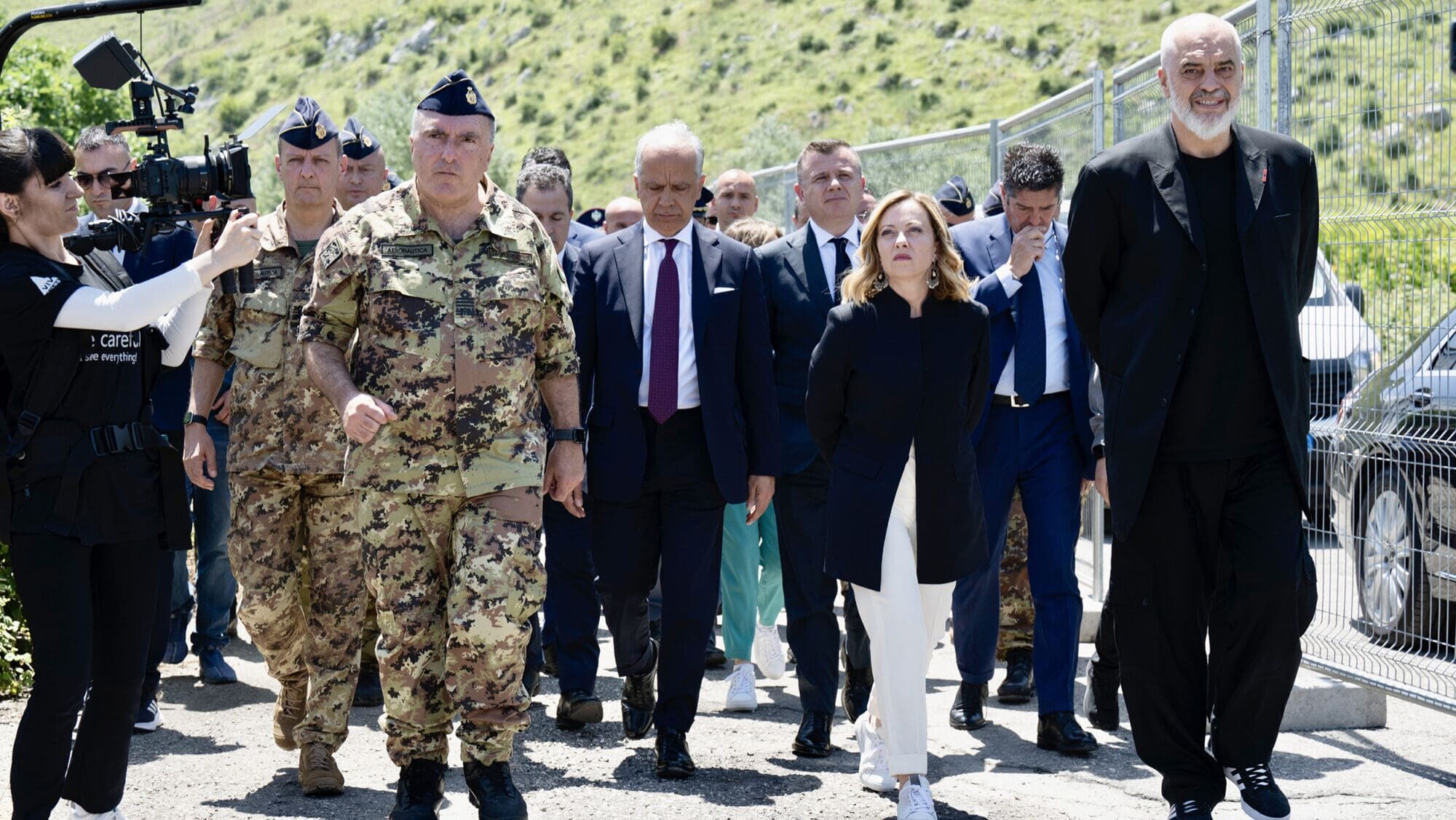
Giorgia Meloni visiting the facilities at the Gjader airbase together with the Prime Minister of the Republic of Albania Edi Rama.
Photo: Italian government, CC-BY-NC-SA 3.0 IT
Italian premier Giorgia Meloni visited the Albanian coastal town Shëngjin on Wednesday to firm up a deal that could see the Balkan country host tens of thousands of asylum seekers on behalf of Italy while their claims are being processed.
After touring the facilities where migrants are to be housed, Meloni met with Albanian Prime Minister Edi Rama. The two countries signed an agreement last November to transfer migrants aiming to arrive in Italy via the Mediterranean Sea to the Balkan country, rather than continue to let them flood the Italian mainland.
Under the terms of the agreement, Albania would house 3,000 migrants for one month each to allow their applications to be decided on. All of the centres will be under Italian jurisdiction and deportations will be fast-tracked for failed applicants.
Italian authorities have stated that only migrants from designated safe countries will be sent to Albania in a deal that is part of a wider European Union trend of externalising border security to non-EU nations.
A NATO-backed, Muslim-majority former-Communist state, Albania has long been an economic and political ally of Italy. Cooperation persists despite the country being plagued by endemic crime and corruption. There is widespread doubt that it will reach the accession criteria needed to become an EU member by 2030.
The cost of the Albanian processing centres is expected to be €134 million per year. They will be operational in early August, two months behind schedule. Human rights groups are agitating against the arrangement, warning about a lack of judicial oversight.
Elected on a platform to curtail illegal migration from the Middle East and Africa, Meloni has forged multiple agreements with non-EU states—including Tunisia—to outsource Italy’s asylum processing. Her agreement with Albania has now gained the approval of the European Commission.
Germany and 12 other EU member states have already complained of Meloni’s attempts to influence EU Commission migration policy in secret. At a live debate in Brussels, left-wing candidates for the Commission Presidency also expressed fears that the Italian prime minister was shifting the EU to the right
Despite the rhetoric from the PM, over 150,000 migrants arrived in Italy illegally in 2023. Meloni was harangued by right-wing opponents even within her own ruling coalition for failing to get to grips with the crisis. When the Italian leader blamed the Mafia for facilitating illegal migration, it seemed like an excuse.
Meloni’s Fratelli d’Italia party is expected to top the polls in this week’s EU elections in Italy, with the party likely to play a kingmaker role between the European establishment and the populist Right following voting this weekend.
